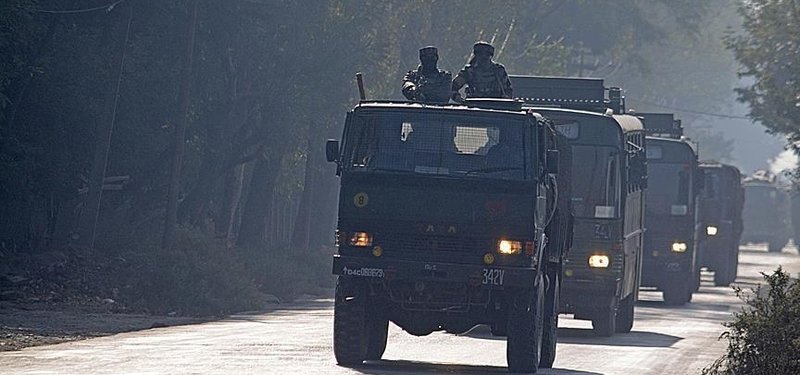
Pakistan, India arms race intensifies in 2016
Nuclear-armed neighbors begin and finish the year with series of 'successful' missile tests
- World
- Published Date: 12:00 | 31 December 2016
- Modified Date: 04:07 | 31 December 2016
India and Pakistan remained locked in an arms race in 2016 amid mounting diplomatic tensions, border clashes and further hikes in already inflated defense budgets.
The two nuclear-armed neighbors, who continue to be locked in a string of sea-and-land disputes, began and finished the year with several "successful" missile tests.
Taking the lead, Pakistan tested its air-launched cruise missile "Ra'ad" in January, saying it could carry nuclear warheads to a range of over 350 kilometers (over 217 miles), and had a reported payload capacity of 450 kilograms (992 pounds).
It carried out its last missile test, the "indigenously designed and enhanced" Babur cruise missile in December 2016.
In a tit-for-tat response, New Delhi test fired its "most powerful" nuclear-capable missile Agni V with Prime Minister Narendra Modi saying it would add tremendous strength to India's strategic defense.
Nuclear powers
Pakistan and India are among a few select countries with nuclear arsenals. India joined the nuclear club long before Pakistan, in 1974, prompting Islamabad to follow suit.
Pakistan silently developed its own nuclear capability in the 1980s, when it was an ally of the U.S. in the first Afghan war against the crumbling Soviet Union.
It did not conduct any nuclear tests, however, until India carried out a series of its own tests in 1999. Only three weeks later, Pakistan conducted six successful tests in the remote Chaghi district near the Afghanistan-Iran border, stoking fears of a nuclear war between the longtime rivals.
According to the Stockholm International Peace Research Institute, India currently possesses between 80 and 100 nuclear warheads, while Pakistan holds between 90 and 110.
A number of international think tanks, meanwhile, which blame China for assisting Pakistan's nuclear program, believe the size of Islamabad's nuclear arsenal will cross the 200-mark within the next five years.
"India will continue to expand its defense expenditures and imports, and Pakistan cannot compete with it in this connection because of the former's much bigger economy," Lt. Gen. (retired) Talat Masood, an Islamabad-based defense analyst told Anadolu Agency.
"Therefore, Pakistan has in the past and will do so in future to match the Indian heavy defense expansion through its nuclear capability," Masood said.
Anadolu Agency

